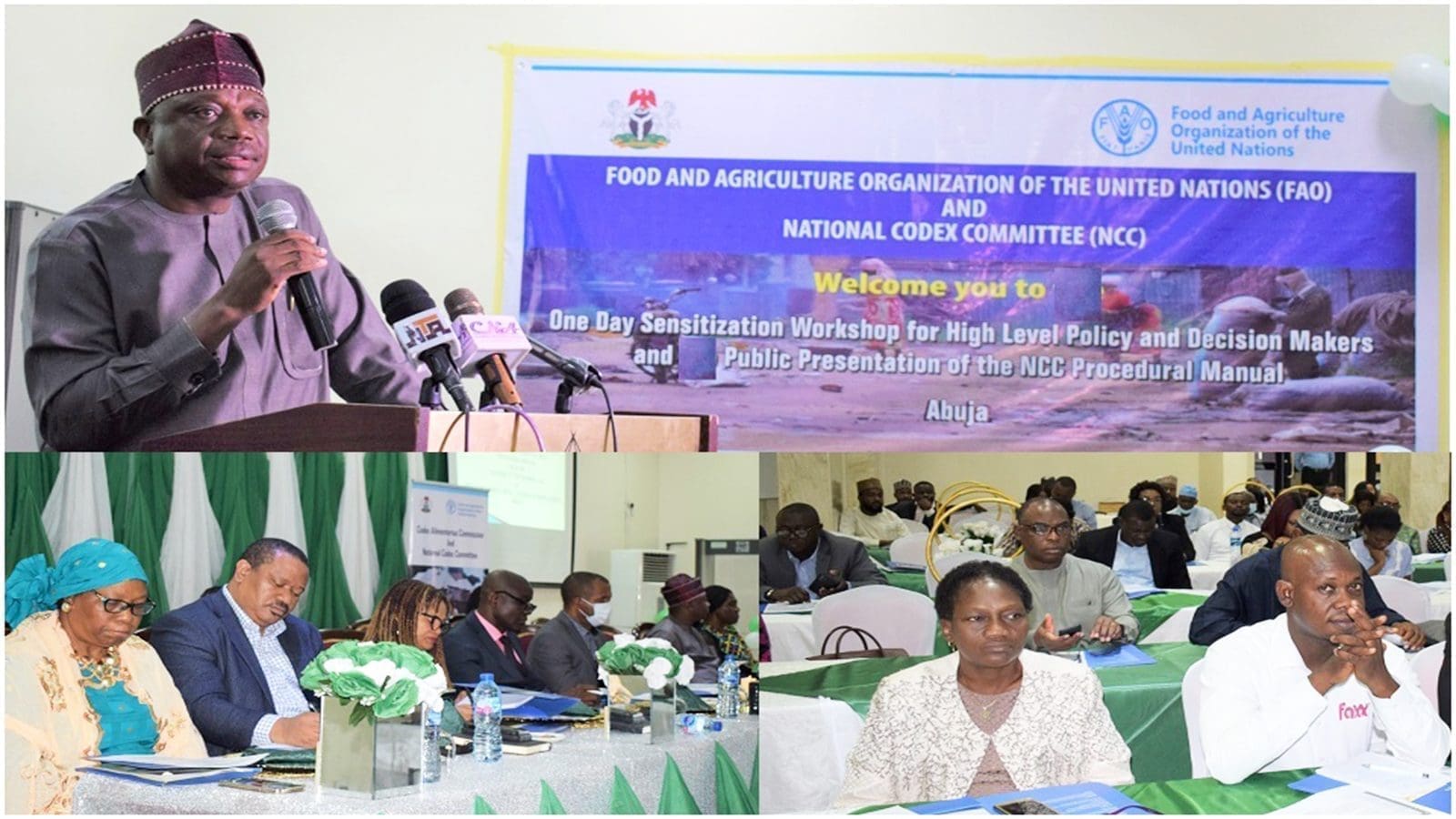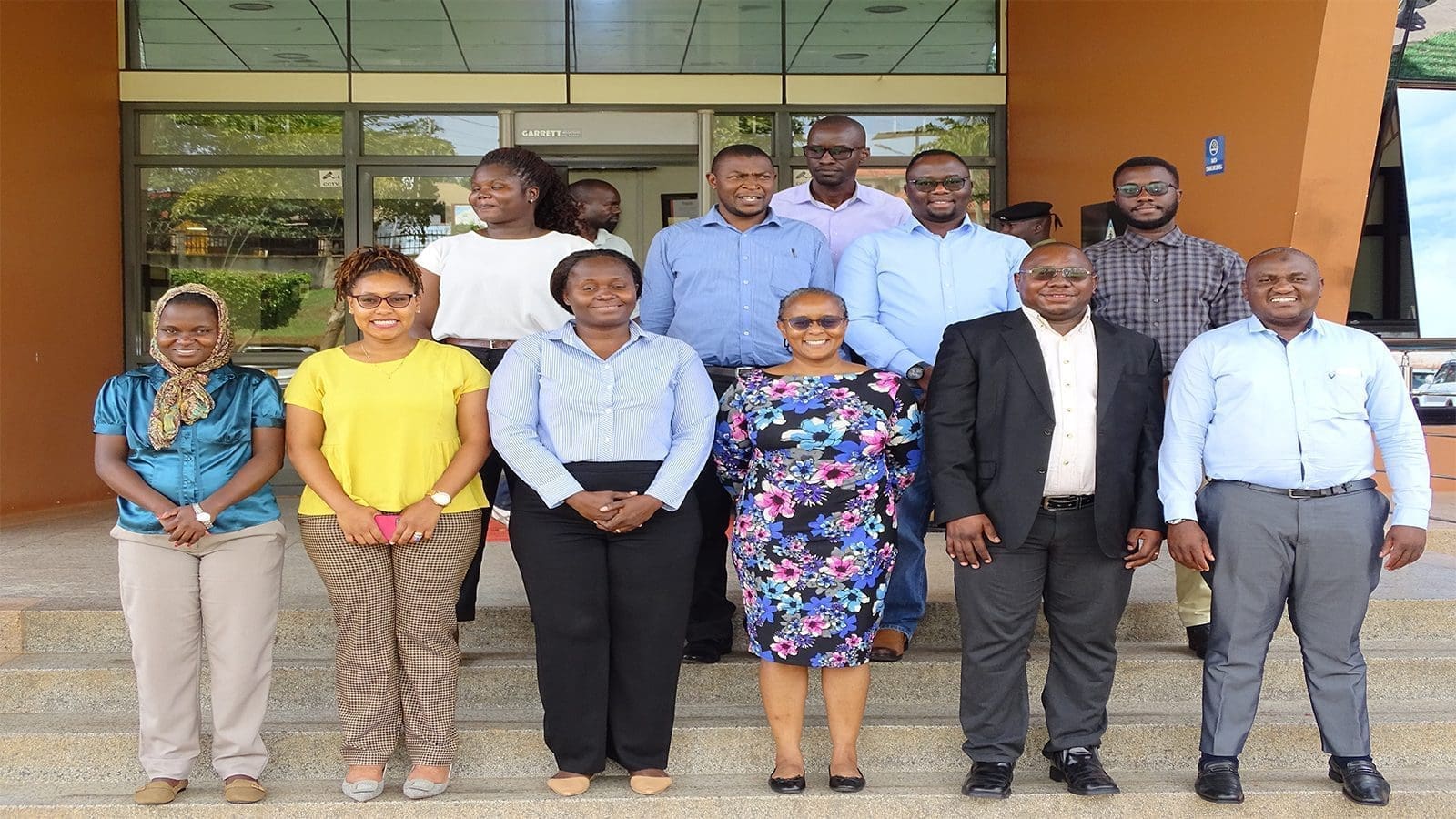NIGERIA – Nigerian stakeholders in the food and commerce sectors, including the Food and Agriculture Organization of the United Nations (FAO), have reiterated their commitment to ensuring that Nigeria continues to uphold international standards for food safety.
The stakeholders signed the agreement during a one-day workshop on policy and decision-making for high-level individuals and the public presentation of the National Codex Committee (NCC) Procedural Manual in Abuja, the capital of Nigeria, which was sponsored by the FAO and the National Codex Committee (NCC).
Nigeria is a member of the Codex Alimentarius Commission (CAC), an intergovernmental body created by FAO and the World Health Organization (WHO) of the United Nations. The CAC is charged with creating international food and agricultural produce standards.
CAC guidelines for international food trade safeguard food safety, consumer protection, and ethical business practices.
The FAO Representative to Nigeria and the ECOWAS, Fred Kafero, said in his message of goodwill during the workshop that cooperation among nations is necessary to maintain food safety.
“There is a need for the world to come together to create food safety and quality standards to protect everyone everywhere,” he said.
Mr. Kafero gave details of FAO’s partnership with the Nigerian government to adopt Codex to end hunger and malnutrition, noting that poor-quality foods do not guarantee food security, according to Voice of Nigeria.
“In Nigeria, the FAO country office with support from the regional office for Africa continues to partner with the Government of Nigeria and the National Codex Committee towards creating effective and efficient policies and strategies to eliminate hunger, food insecurity, and malnutrition in the country.
“FAO believes that ensuring the supply of safe, quality and nutritious foods is as important as ensuring the availability of foods and food standardization. Poor quality foods do not ensure food security,” he said.
The Chief of Staff to the Director General, Professor Olobayo Kunle, outlined the goals of the NCC’s activities in Nigeria.
He delivered the welcome address on behalf of the Director General and Chief Executive Officer of the Standard Organization of Nigeria (SON), who stressed the importance of ensuring national-level actions in favor of food safety.
He noted that some of the objectives are to Create awareness of Codex activities for high-level policy/decision makers from the National Legislature as well as various stakeholders and advocate for more support (financial, legislative, and human) for the national codex.
The actions are also meant to improve the technical capacities of NCC members, farmers, processors, industry, and universities/research institutions and present to the public and distribute NCC Procedural Manual as sufficiently as possible.
The NCC Procedural Manual needed to be reviewed, in Professor Kunle’s opinion, to better reinforce the Nigerian Codex framework, keep up with the development of Codex operations through time, and integrate significant modifications.
The National Codex Committee was established in Nigeria in July 1973 by the Federal Executive Council to offer a platform for Codex activities at the national level, providing government advice on quality and international trade in food and agricultural products.
Liked this article? Subscribe to Food Safety Africa News, our regular email newsletters with the latest news insights from Africa and the World’s food safety, quality and compliance. SUBSCRIBE HERE








